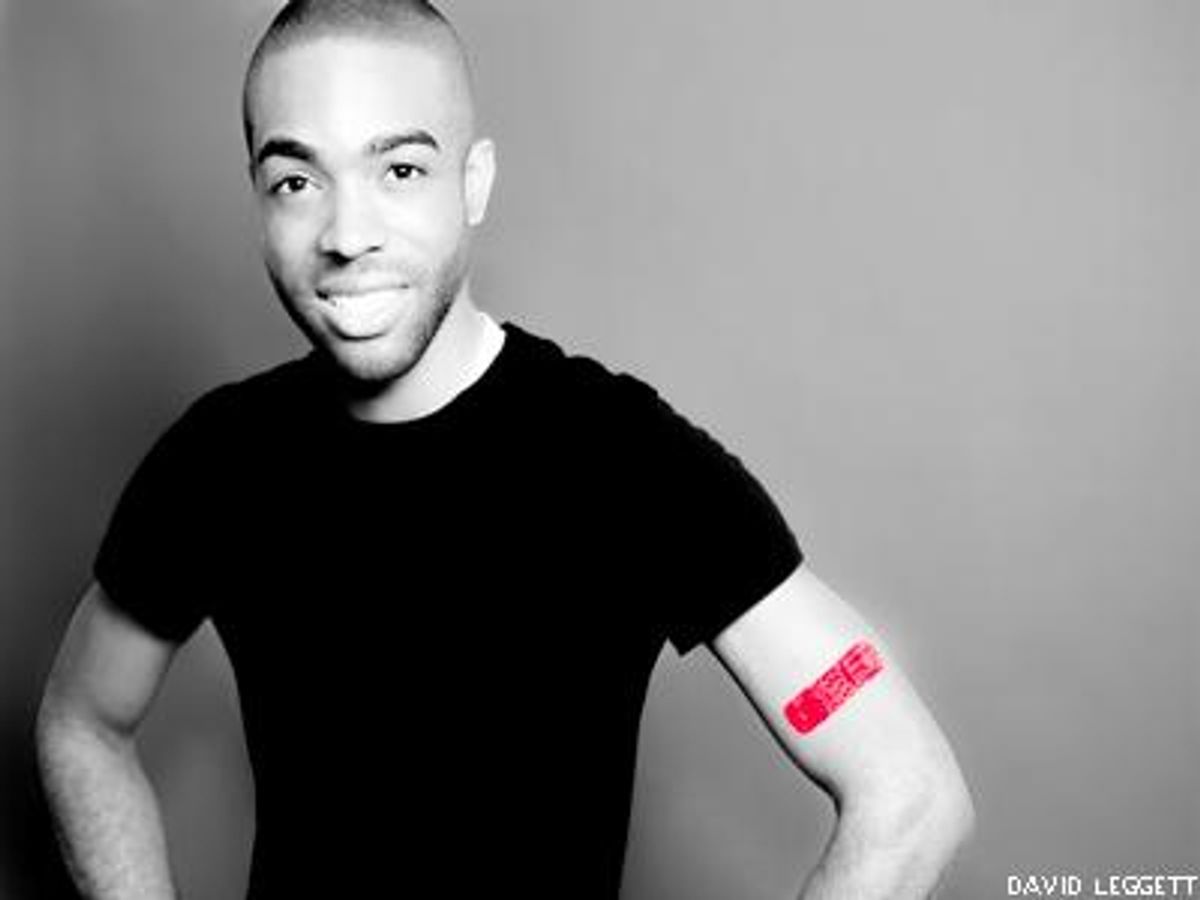Eli Jameson was always close to his brother, Estis. Growing up a gay African-American in Midland, Texas, it can be a little difficult to find someone to relate to. When your older brother happens to be of the same persuasion, you tend to stick together. Eli never kept a secret from Estis. So when Eli first learned of Estis's HIV-positive status after he had died of complications from the virus, he was left to search for an answer his brother could no longer give.
Estis had 10 years on Eli and was the epitome of the protective older brother. He was the consummate protector, even when the favor wasn't always appreciated. Eli laughs heartily as he recalls one of those instances.
"He actually outed me," Eli says. "I was in college and was dating a boy that my brother knew. I was madly in love with a guy, but my brother said he was bad news. He said if I didn't dump the guy that he would tell my mom that I was gay. So ... he did."
Later that semester, Eli's mother attended Parent Appreciation Day. She said nothing, but handed Eli a card with an elaborate picture of a parrot in bright rainbow colors. Inside, the card simply read, "I'll accept you no matter what." Apparently Estis knew what he was doing.
The two brothers eventually found themselves living in the same city. Estis lived with his partner of 10 years in a house they bought together while Eli bounced around the city living the young, single life. To Eli, his brother was his blueprint, living the kind of life he was searching for. So when Estis's health started to decline, the model his brother so carefully drawn out slowly started fading out of focus.
Estis had endured a series of tough blows to his health in the seven years before his death. He experienced a series of strokes, struggled with high blood pressure, and had a bout with testicular cancer. Still, Eli thought his brother would always come out on top of things. The more Eli described his brother, it became apparent that "being OK" was exactly what Estis wanted him to think.
"He always seemed to be so healthy and outgoing," said Eli. "He could be sick and nearly dead and you would never know it. He would never let you know it."
But Estis was indeed sick. He had been on antretroviral treatment for about a year, but his doctor estimated that he had been HIV-positive for nearly five years. Despite the medication, his other conditions proved too much for his immune system. Eli, his mother, and his sister struggled with this new information as they grieved the loss of Estis.
Eli's mother, Marva, experienced the most hardship over the news of her late son's HIV-positive status. She became angry at Randy, Estis's partner, who was also positive. Marva resented him over the death of her son. She became possessive of the remnants of Estis and asked Randy to sell the house and return all of her son's belongings to the family. Quietly, Randy attempted to grieve alongside Eli's family and participate in the funeral arrangements. But Eli's mother would have none of that.
"She said that he was her baby." says Eli. "She said, 'You did your part and now I will take care of him.' She wouldn't even let him come to the funeral."
Marva wasn't a prejudiced woman. She loved her two sons and all the pieces that made them Eli and Estis. But grief had taken hold, and it was easy to take out her pain on the person who was closest to her departed child.
Due to Estis's sudden death, his doctor recommended that Marva, Eli, and his sister, Sharon, go through a series of family therapy sessions. It was this process that allowed Eli and Sharon a chance to speak candidly with Marva. They told her that the way she was treating Randy was wrong, that the house and Estis's possessions were also a part of Randy's memories. He was grieving too.
Marva resisted at first. Grief can be difficult to release when it's shrouded in anger. Eventually, her children's words began to penetrate, and she began to see Randy as she once did: as the love of her son's life.
Eli's struggle was a bit different. To him, Randy wasn't to blame for his brother's passing -- every positive person was. He began to resent the gay life and started to see the various shades of the rainbow as the culprit in his brother's death. He was angry that his brother had hid his status from him. His mother compounded his fear and anger regarding HIV. She would tell him to "be careful" and that "she didn't need to lose another son."
Now Eli realizes that Estis was still trying to protect him from his own experiences and maintain that blueprint he had so carefully crafted. He has come a long way and now only wishes to do what Estis couldn't; share his experience with HIV so that others may learn from it.
"My brother was always trying to help people," Eli says. "If my story can help others to speak about their own story, than this is something I have to do. If I could identify myself as an HIV-negative man who was single, dating, and wanting to come to terms with dating someone who is positive, I needed to tell my story. I had a sense of anger at the positive status."
Eli has found solace in his relationship with Randy. They see each other often and reminisce about the times they spent with Estis. Randy has a new partner now. They have been together for almost a year.
As for Marva, she has come quite far herself. For the past three years, she has organized a family trip so that they can continue to mend their relationships and move forward in their journey. And for the past two years, she has invited Randy to join them. He accepted the invitation.
As Eli recounts his story three years to the day since his brother's passing, he can't help but smile as he says, "My brother was always so protective when he was alive. As weird as it sounds, now I feel like I gained a guardian angel. In any situation I go in, whether it's dating or my career, I feel like my brother is always there."
Estis will always protect Eli. Now Eli wants to help protect others, no matter what their status his.
Just like any shot, we fear the prick of the needle. But a conversation about what it means to be HIV-positive today is just the medicine we need.
Get pricked. Eli Jameson did.
TYLER CURRY created the Needle Prick Project, photographed by David Leggett, as an editorial campaign to elicit a candid and open conversation on what it means to be HIV-positive today. To learn more about The Needle Prick Project, visit www.facebook.com/getpricked or follow Tyler Curry on twitter at @iamtylercurry. For more on Eli Jameson, follow him on Facebook.



















































































